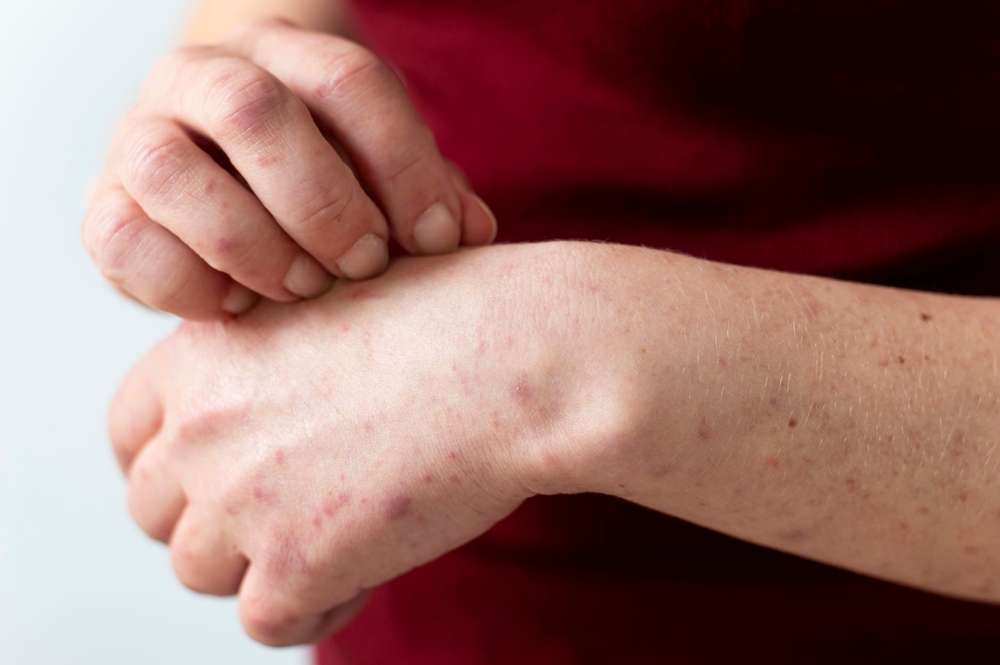How Autoimmune Disease Affects the Scalp
Itching or discomfort on the scalp may be linked to autoimmune responses, particularly when no external cause is identified. These concerns may also relate to skin texture or hair density shifts. Understanding such patterns may support thoughtful health discussions.

What Autoimmune Disease Means for the Body
Autoimmune diseases occur when the immune system mistakenly attacks healthy cells in the body instead of protecting them. Normally, the immune system distinguishes between foreign invaders and the body’s own tissues. However, in autoimmune conditions, this recognition system malfunctions, causing inflammation, tissue damage, and disruption of normal bodily functions.
This immune dysregulation can affect virtually any part of the body, including the skin and its appendages. When autoimmunity targets the scalp region, it may manifest through inflammation of skin cells, hair follicles, or sebaceous glands. Common systemic autoimmune diseases that may impact the scalp include lupus, rheumatoid arthritis, psoriasis, and Hashimoto’s thyroiditis. Each condition has distinct mechanisms but shares the fundamental problem of immune cells inappropriately targeting healthy tissue.
Common Scalp Conditions Linked to Autoimmunity
Several scalp conditions have direct connections to autoimmune processes, with varying presentations and impacts on scalp health:
Alopecia Areata: This condition occurs when the immune system attacks hair follicles, resulting in patchy hair loss on the scalp and sometimes elsewhere on the body. In severe cases, it can progress to complete scalp hair loss (alopecia totalis) or entire body hair loss (alopecia universalis). The hair follicles remain alive, meaning regrowth is possible if the immune response subsides.
Psoriasis: Scalp psoriasis affects approximately 50% of people with psoriasis. It causes red, inflamed patches with silvery-white scales that can extend beyond the hairline. Unlike simple dandruff, the scales are thicker, and the condition is often accompanied by intense itching and discomfort. The immune system speeds up skin cell growth, causing cells to accumulate rapidly on the surface.
Discoid Lupus Erythematosus (DLE): This form of lupus primarily affects the skin and can cause coin-shaped lesions on the scalp. These lesions may develop scarring that permanently damages hair follicles, leading to irreversible hair loss in affected areas. The lesions typically appear red and scaly with clear borders.
Lichen Planopilaris: This inflammatory condition targets hair follicles specifically, causing patchy, progressive hair loss with redness, scaling, and eventual scarring. Small white dots may appear where hair follicles once existed, and the condition often causes significant itching or burning sensations.
Dermatomyositis: While less common, this inflammatory disease can cause a distinctive violet-colored rash on the scalp, accompanied by thinning hair and scalp tenderness. It’s often associated with muscle weakness and may be triggered by underlying malignancy in some cases.
Diagnosing Autoimmune Scalp Conditions
Identifying autoimmune conditions affecting the scalp often requires specialized diagnostic approaches:
Dermatologists typically begin with a thorough examination of the scalp, looking for distinctive patterns of inflammation, scaling, or hair loss. A family history of autoimmunity is particularly relevant, as many autoimmune conditions have genetic components. Scalp biopsies provide definitive information about the underlying immune processes, showing characteristic patterns of inflammation and cell damage.
Blood tests to check for specific autoantibodies, inflammatory markers, and hormonal imbalances can help confirm diagnoses and rule out other potential causes. Trichoscopy (hair and scalp dermoscopy) allows for magnified visualization of the scalp surface, helping differentiate between various conditions based on specific visual patterns.
Early diagnosis is critical, as some autoimmune scalp conditions can lead to permanent scarring and irreversible hair loss if left untreated.
Treatment Approaches for Autoimmune Scalp Conditions
Treatment strategies for autoimmune scalp conditions generally aim to suppress the abnormal immune response while managing symptoms:
Topical corticosteroids are first-line treatments for many autoimmune scalp conditions, reducing inflammation and suppressing immune activity locally. For more severe cases, immunomodulating medications like methotrexate, cyclosporine, or newer biologics may be prescribed to target specific parts of the immune system. Injections of corticosteroids directly into affected scalp areas can provide targeted relief for persistent lesions or areas of hair loss.
Light therapy (phototherapy) has shown effectiveness for conditions like psoriasis and some forms of alopecia. Specialized hair care routines using gentle, non-irritating products can help manage symptoms without exacerbating inflammation. Some patients benefit from complementary approaches like stress reduction techniques, which may help modulate immune responses.
Treatment plans must be individualized, considering the specific diagnosis, severity, and any coexisting conditions. Regular monitoring is essential, as autoimmune conditions often fluctuate in activity and may require adjustments in management strategies.
Lifestyle Factors That May Support Scalp Health
While medical treatments are primary for autoimmune scalp conditions, certain lifestyle modifications may complement clinical care:
An anti-inflammatory diet rich in omega-3 fatty acids, antioxidants, and plant compounds may help reduce systemic inflammation. Some studies suggest connections between gut health and autoimmunity; probiotic-rich foods might positively influence immune function. Stress management techniques like meditation, yoga, or mindfulness can be beneficial, as stress is known to trigger flares in many autoimmune conditions.
Regular, moderate exercise supports overall immune function without overtaxing the system. Adequate sleep is crucial for immune regulation and inflammation control. Avoiding harsh hair treatments, excessive heat styling, and chemical processes prevents additional damage to compromised scalp tissue.
Environmental triggers like certain hair products, extreme temperatures, or sun exposure should be identified and managed. Being gentle with the scalp—avoiding scratching, tight hairstyles, or rough brushing—can prevent further irritation of already inflamed tissue.
Conclusion
Autoimmune diseases can significantly impact scalp health, manifesting through various conditions from hair loss to painful inflammation. Understanding these connections allows for earlier recognition and more effective management of symptoms. While medical treatment remains the cornerstone of care, a holistic approach incorporating appropriate lifestyle modifications can support overall management. For those experiencing persistent or unusual scalp symptoms, consultation with healthcare providers is essential to determine whether an autoimmune process might be involved and to develop an appropriate treatment strategy.
This article is for informational purposes only and should not be considered medical advice. Please consult a qualified healthcare professional for personalized guidance and treatment.




